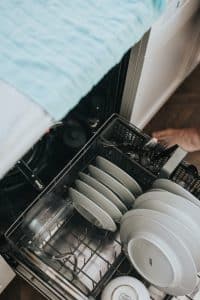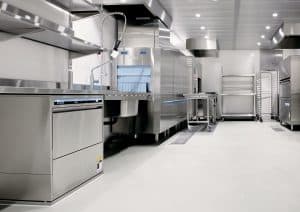
A dishwasher‘s place and responsibilities in a home seem clear enough. But what about leading up to a wash cycle? Some people believe it’s necessary to rinse before loading glassware into a dishwasher, and commercials will boast that their product doesn’t require this additional task.
But is it necessary? The debate is an old one, competing with Pepsi vs. Coca-Cola, or “Is a hotdog a sandwich?” Despite its longtime presence, this debate actually has some new talking points that require consideration. Specifically, experts argue that rinsing wastes copious amounts of water. Here’s how.
Those who clean glassware before putting them in the dishwasher say rinsing protects their expensive appliance

Watch a dishwasher commercial and it probably tells potential buyers they won’t have to rinse beforehand, their product is so good. But running some water over dirty glassware, maybe putting a sponge to them too, is a pretty old habit in many households. When asked, these people have practical reason for doing what they do. It’s not just about getting food off a plate or not trusting the appliance to do the job.
RELATED: 6 Things You Should Never Put In Your Dishwasher
On the contrary, sometimes it’s more about keeping that food out of the dishwasher and its delicate guts. Once that stuff gets in, it can get into some tight places and cause clogs. That, in turn, can mean a very expensive repair or, eventually, replacement. Sure, maybe the dishwasher does do its job properly and get those leftovers and smears off the plate completely, but it has to go somewhere.
Rinsing dishes before putting them in the dishwasher might not be worth it on two fronts

Rinse vs. not rinsing is an old debate; early dishwasher models date back to the 1850s. Jump ahead to when they became more mainstream in U.S. houses, pre-rinsing might have been a necessity. But that’s not the case anymore and the debate needs to account for advances in technology.

For example, notes HomeServe, modern dishwashers have a soil-sensing system that comes complete with a dedicated soil collector and pressure sensor. So, it’s built to handle whatever is put into it, from the dishes to the food still lingering on it. Also, this system means it will put in just the amount of work – and water – needed for each individual job and no more.
That leads into the other point presented by experts, who argue that rinsing wastes water and each round of rinsing adds up significantly.
Where do you fall in this debate?

